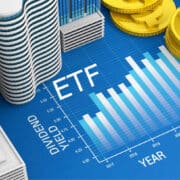In a recent post on LinkedIn, billionaire investor Ray Dalio, the founder of Bridgewater Associates, shed light on why the economy is not slowing down as expected, despite the Federal Reserve’s aggressive interest rate increases and other tightening measures since March of last year.
Shifting Wealth and Government Intervention
Dalio emphasized that there has been a significant shift in wealth orchestrated by the government. This redistribution involved transferring wealth from both the public sector (central government and central bank) and holders of government bonds to the private sector, comprising households and businesses. As a result of this coordinated effort, the private sector has become relatively unresponsive to the Federal Reserve’s rapid tightening aimed at achieving a more normal monetary policy.
Household Vs. Government Sector
Dalio pointed out that this maneuver has left the household sector in excellent financial health, with robust balance sheets and stronger income statements. In contrast, the government sector is faring poorly in terms of its financial situation.
Economic Growth and Resilience
Recent data reveals that the U.S. economy exhibited resilience by expanding at an annual pace of 2.4% during the second quarter. This growth was driven by steady consumer spending and a rebound in business investment.
Fiscal and Monetary Policies
Dalio observed that in 2020 and 2021, governments worldwide ran substantial budget deficits while central banks purchased substantial amounts of bonds. However, in 2022, as inflation soared and unemployment remained low, there was a shift toward implementing “less insanely easy fiscal policies.” Concurrently, central banks began moving away from excessively lax monetary policies that had led to negative real bond yields.
In summary, Dalio’s perspective highlights the impact of wealth redistribution and government interventions on the resilience of the economy. Despite tightening measures by the Federal Reserve, the private sector’s relative insensitivity has sustained economic growth. The contrasting financial health of the household and government sectors further reinforces this scenario.
The Economic Landscape: A Look at Stocks and Bonds
In a recent analysis, renowned investor Ray Dalio highlighted the contrasting performance of stocks and bonds in the past year. While both markets experienced a downturn, the private sector’s net worth soared to new heights, unemployment rates reached record lows, and compensation levels spiked. Meanwhile, central governments accumulated significant debt, and central banks, along with other government bondholders, incurred substantial losses.
Dalio’s concerns find support in historical precedents. Similar incidents throughout history have served as cautionary tales, providing evidence of potential future consequences.
Looking ahead, Dalio forecasts a period of slow growth and high inflation, a scenario known as “mild stagflation.” However, this outcome assumes that the supply and demand balance for government debt remains stable.
Taking a long-term perspective, Dalio identifies an almost certain increase in central governments’ fiscal deficits. As debt service costs and other budget expenses continue to rise, governments will be compelled to sell more debt. This self-reinforcing cycle will eventually lead to market-enforced debt limits. Concurrently, central banks will be forced to print more money and purchase more debt, exacerbating their losses and weakening their balance sheets.
Dalio’s remarks followed Fitch Ratings’ decision to downgrade the U.S. credit rating from AAA to AA+. This news triggered a pause in the upward trajectory of U.S. stocks. The S&P 500 declined by approximately 1.3%, while the Dow Jones Industrial Average experienced a decrease of around 330 points, or 0.9%.
See: What Fitch’s U.S. Credit Downgrade Means for Investors






Comments